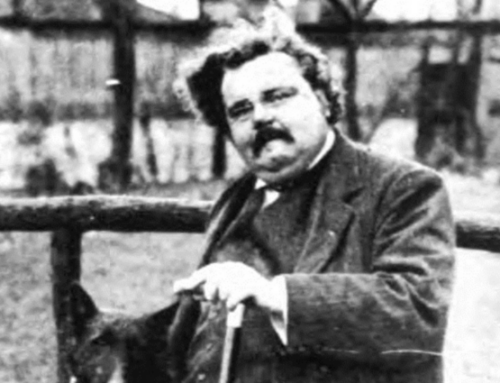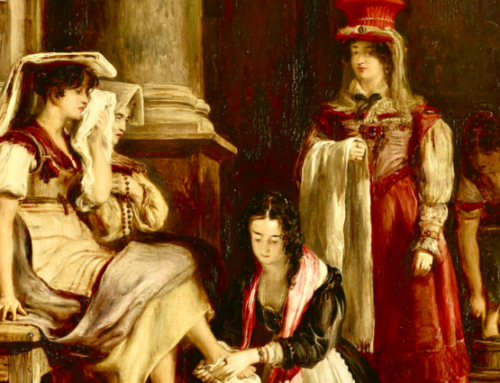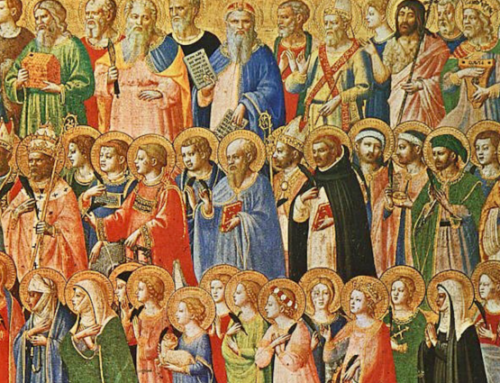Having passed away recently, Lewis scholar Walter Hooper will be missed, but we can well believe that he is now once more with C.S. Lewis, whom he had served most faithfully for so many years, in a place in which it is never winter but always Christmas.
 With the passing of Walter Hooper on December 7, we lost one of the few remaining living links to the life of C.S. Lewis. For those who are unaware of the life and legacy of this remarkable man, Hooper was a friend of Lewis in the final years of the great writer’s life and became Lewis’ personal secretary for a brief time during Lewis’ final illness. More important, he became a great champion of Lewis in the years following Lewis’ death in 1963, emerging as the preeminent Lewis scholar at a time when Lewis’ star was very much in the ascendant.
With the passing of Walter Hooper on December 7, we lost one of the few remaining living links to the life of C.S. Lewis. For those who are unaware of the life and legacy of this remarkable man, Hooper was a friend of Lewis in the final years of the great writer’s life and became Lewis’ personal secretary for a brief time during Lewis’ final illness. More important, he became a great champion of Lewis in the years following Lewis’ death in 1963, emerging as the preeminent Lewis scholar at a time when Lewis’ star was very much in the ascendant.
Hooper first came to my attention as the co-author, with Roger Lancelyn Green, of one of the better biographies of Lewis, but his greatest achievement as a Lewis scholar resides in his authorship of the indispensable C.S. Lewis: A Companion and Guide, later published as C.S. Lewis: A Complete Guide to His Life and Work, and also, and of at least equal importance, in his meticulous editorship of the three volumes of Lewis’ Collected Letters. Anyone who has researched Lewis’ work in any depth can hardly fail to be deeply indebted to Hooper’s own pioneering and groundbreaking labours.
I first met Walter Hooper in 1996 after he had kindly agreed to meet me to discuss Lewis and Tolkien, whom he also knew, as part of the research for my book, Literary Converts. At the time of our first meeting, I had just become a fulltime writer following the publication of my biography of Chesterton, and I was struck by his affability and the generosity with which he offered me his time and hospitality. We struck up an instant rapport, based no doubt in our having so much in common: a shared love of Lewis and Tolkien, and Chesterton, and a shared love for the Catholic Church, to which we were both converts, Hooper being received in 1988, a year ahead of my own reception. We became fast friends, my returning to Oxford to interview him again for my subsequent book, Tolkien: Man & Myth.
Thereafter, over the next few years, I visited his home in north Oxford whenever I visited the city. Although he was in his mid-sixties, he was in remarkably good shape, helped no doubt by the gym that he had set up in his home. As an habitué of my own local gym, wherever I happened to be living, desiring to keep my body as well as my mind exercised, this was something else we had in common.
In the summer of 1999, I spent a week at Brasenose College serving as the resident tutor for a summer program sponsored by the Phoenix Institute, taking the opportunity to visit Hooper when my responsibilities permitted. It was during this week that I met my future wife, Susannah. Two years later, following our marriage, and during the brief period that we lived in England prior to our moving to the States, I took her to visit Hooper in his home, where he graciously made us tea. As we enjoyed this quintessentially English experience, Susannah noticed a mouse dash across the floor. Having become aware of the unexpected guest, Hooper was at great pains to usher it from the premises, not so much from a disdain for the intruder as from fear that it might fall victim to his cat. Susannah and I both felt that this indicated a sentimental affection for all creatures great and small which reflected C.S. Lewis’s own creaturely sensibilities.
Following my move to the United States in 2001, Hooper and I had fewer opportunities to meet, though I did my best to visit him whenever my travels took me back to Oxford.
One final instance of Hooper’s generosity should be noted, which accentuates my sense of gratitude and indebtedness towards him. In around 2001, someone at Ignatius Press contacted him to request an endorsement for a new edition of Christopher Derrick’s book, C.S. Lewis and the Church of Rome. He politely declined the request, suggesting that he didn’t think that Mr. Derrick’s book should be republished, on the grounds that it was too acerbically critical of Lewis. The editor at Ignatius Press then invited Hooper to write a new book on the subject of Lewis’ relationship with the Catholic Church. Since he was in the midst of his monumentally important work on Lewis’ letters, he was not able to accept; instead, he suggested that I would be the perfect person to write such a book. It is, therefore, thanks to Hooper’s intercession that I came to write and research my book, C.S. Lewis and the Catholic Church, affording me the joyous opportunity to delve deeply into Lewis’ relationship with Catholicism, a subject that had intrigued and fascinated me for many years.
Such are some of my own personal reminiscences of Walter Hooper.
He will be missed but we can hardly feel very sorry for him. On the contrary, we can well believe that he is now once more with C.S. Lewis, whom he had served most faithfully for so many years. As for where they are exactly, we might be tempted to muse, in adapting Lewis’ own words that they are now in a place in which it is never winter but always Christmas; or we might be content to let Lewis’s concluding words in The Last Battle be our final words on where C.S. Lewis and Walter Hooper will be spending this Christmas:
[W]e can most truly say that they… lived happily ever after. But for them it was only the beginning of the real story. All their life in this world and all their adventures in Narnia had only been the cover and the title page: now at last they were beginning Chapter One of the Great Story which no one on earth has read: which goes on forever: in which every chapter is better than the one before.
The Imaginative Conservative applies the principle of appreciation to the discussion of culture and politics—we approach dialogue with magnanimity rather than with mere civility. Will you help us remain a refreshing oasis in the increasingly contentious arena of modern discourse? Please consider donating now.
The featured image is courtesy of Pixabay.







Mr. Pearce,
A beautiful and thoughtful article! Thank you for publishing this.
Thank you.
Thank you! I am compelled to read further.